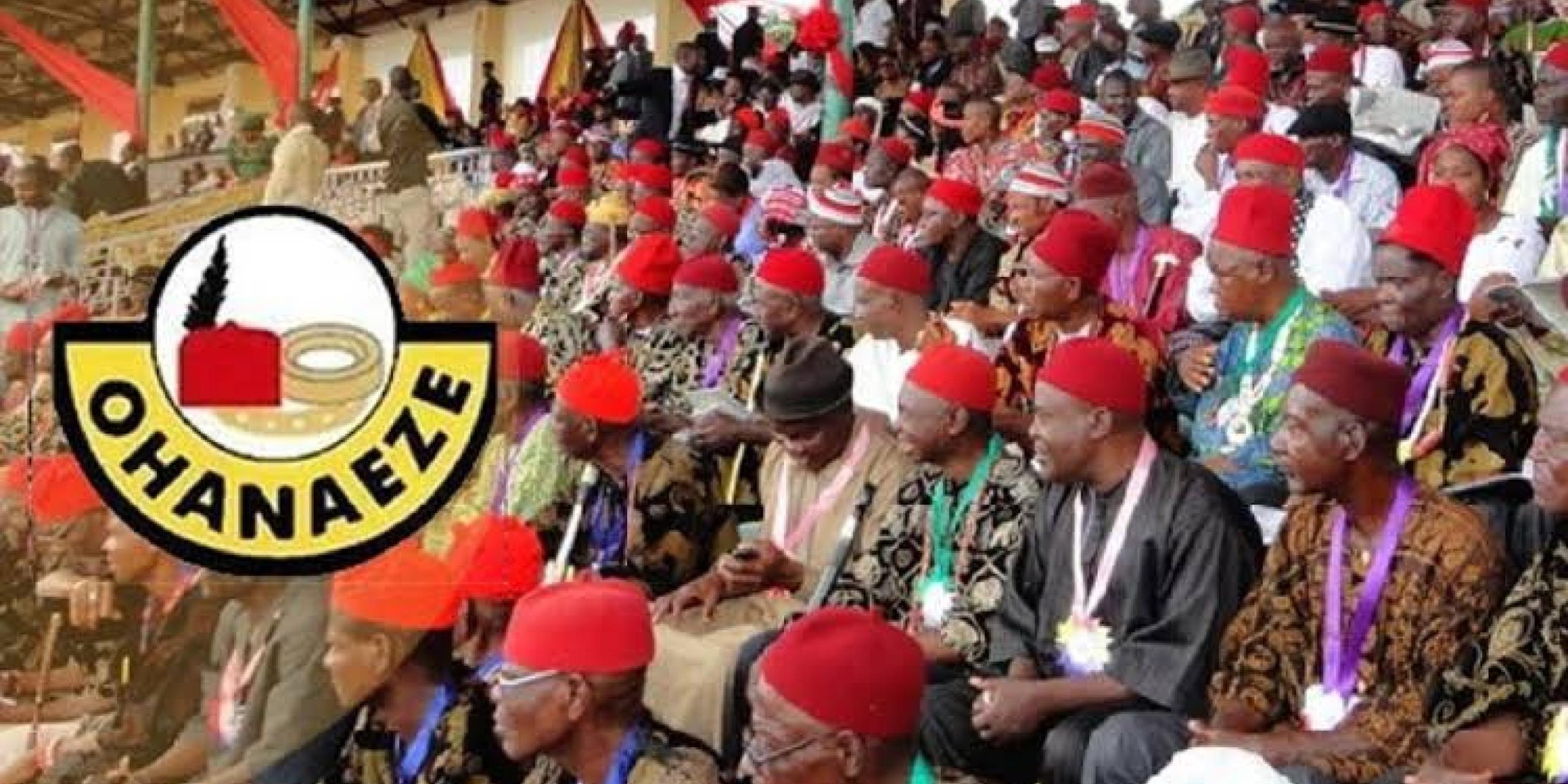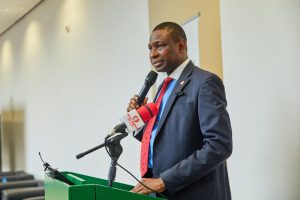Ohanaeze Ndigbo Renames May 30 ‘Igbo Heroes Day’, Calls For Peaceful Observance
In a significant cultural and historical pivot, Ohanaeze Ndigbo, the apex socio-cultural organisation representing the Igbo people of Nigeria, has officially renamed May 30 as Igbo Heroes Day. This newly designated day replaces what was traditionally observed as Biafra Remembrance Day, a solemn and politically charged occasion that has evoked mixed emotions across the South-East geopolitical zone of Nigeria for decades.
This rebranding marks a deliberate shift from the divisive and sometimes violent legacy associated with the Biafra Remembrance Day. Instead, Igbo Heroes Day aims to foster unity, peace, and a collective honouring of the gallant individuals who laid down their lives in defense of the Igbo identity during and after the Nigerian Civil War, commonly referred to as the Biafran War, which lasted from 1967 to 1970.
Ohanaeze Ndigbo, in a statement signed by its Deputy National President, Mazi Okechukwu Isiguzoro, described the change as a strategic and necessary evolution. The group believes that the new name not only better captures the spirit of remembrance but also resonates more with the younger generation, many of whom are detached from the historical intricacies of the Biafran struggle yet are deeply affected by the sociopolitical fallout it left behind.
“This shift is not an erasure of history,” the statement read, “but a conscious recalibration of how we choose to remember our fallen. We honour their courage, resilience, and sacrifice by creating a commemorative space that is both inclusive and forward-looking.”
A key consideration in Ohanaeze’s decision to rename May 30 and call for a peaceful observance is the ongoing West African Examinations Council (WAEC) assessments. These crucial secondary school exams, which run from late April through June, often overlap with the date historically marked for Biafra Remembrance Day. This overlap has led to significant challenges for students, particularly in communities where enforced sit-at-home orders disrupt not just business and transport but also the ability of students to safely access their exam centres.
YOU MAY READ
From “Eze Amosu” to Eze Jesus”! The traditional ruler of Mbaukwu community donates Palace to Pallottine Catholic community
“We regard the academic pursuits of our students as paramount,” the statement noted. “The future of the Igbo nation depends on the education and empowerment of our youth. It is therefore counterproductive to adopt commemorative methods that jeopardise their futures.”
Ohanaeze Ndigbo strongly condemned any form of coercive observance, especially the kind that leads to economic stagnation or physical confrontations with security forces. In past years, clashes on May 30 have resulted in loss of life, destruction of property, and an atmosphere of fear and uncertainty throughout the South-East. The group emphasised that this must never be the legacy of those who died fighting for freedom and dignity.
The renaming of Biafra Remembrance Day to Igbo Heroes Day signals a broader philosophical transition within Igbo leadership circles—from a posture of resistance to one of strategic engagement and nation-building. Mazi Isiguzoro explained that the Igbo people, while deeply proud of their heritage and history, must now align their cultural commemorations with the realities of modern Nigeria and the globalised world.
“This is a time to reimagine our role in Nigeria,” he stated. “While we never forget the sacrifices of our heroes—men and women who bravely stood up for justice and self-determination—we must now chart a course that builds bridges, not walls.”
To this end, Ohanaeze has extended its hand to South-East political leaders, calling on governors and lawmakers to adopt Igbo Heroes Day as an official public holiday across the region. This recognition, the organisation argues, would go a long way in institutionalising the day as one of solemn reflection, cultural pride, and peaceful unity.
Furthermore, Ohanaeze is urging traditional rulers, town unions, student bodies, religious institutions, and youth organisations to join in planning community-based events that educate the public about the significance of May 30, while also promoting Igbo language, history, innovation, and entrepreneurship.
In the last five years, the observance of May 30 has been marred by violent enforcement of sit-at-home orders, particularly by secessionist factions such as the Indigenous People of Biafra (IPOB). These enforcement actions have often led to deadly confrontations with the Nigerian Police and military, making the day one of dread for many ordinary citizens.
Markets, schools, transport services, and hospitals are usually forced into closure, and those who defy the sit-at-home order risk attacks. In some cases, even scheduled WAEC candidates have been targeted or obstructed from attending their exams. The unintended consequence has been a growing resentment among the public, especially among traders, parents, and educators.
Ohanaeze’s statement called for an immediate end to such mandates. “No honour comes from hardship imposed on the living in the name of the dead. True respect for our fallen heroes is expressed through peace, progress, and shared prosperity—not fear, force, or fatalities,” it read.
The group warned that any further insistence on mandatory sit-at-home directives—without broad community consensus or official sanction—would be deemed counterproductive and against the spirit of the new Igbo Heroes Day.
Recognising the recurring tension between law enforcement agents and civil society during this period, Ohanaeze made a dual appeal. First, to the youth: to observe the day peacefully, avoid confrontations, and not allow themselves to be used as instruments of instability. Second, to the Nigerian security forces: to exercise restraint, act with professionalism, and avoid provocative deployment patterns or language that could escalate tensions.
“Both sides must act with maturity and caution,” Isiguzoro urged. “We must prevent the needless shedding of blood and trauma. Our history is already soaked in grief. Let us not add to it.”
The organisation further encouraged town hall meetings, lectures, exhibitions, and inter-generational dialogues as alternative ways to honour the memory of fallen heroes. Activities such as these, it said, offer an avenue for younger Igbo people to engage meaningfully with their past, learn lessons from it, and envision a better future.
May 30 marks the day in 1967 when Lt. Colonel Chukwuemeka Odumegwu Ojukwu declared the secession of the Eastern Region from Nigeria, thereby creating the Republic of Biafra. The declaration sparked a civil war that lasted for thirty months, resulting in the deaths of over a million people, most of them Igbos. Starvation, bombing raids, and massacres defined the horrors of that war.
In the decades following the war, many Igbos have continued to observe May 30 as a day of mourning and defiance—an annual reminder of what was lost, and a platform to demand justice, recognition, and political reform. However, the methods of observance have varied, with some choosing quiet reflection and prayer, and others staging protests and issuing calls for secession.
By renaming the day, Ohanaeze hopes to harmonise these disparate approaches into a unified, constructive expression of identity and remembrance.
“We must not only remember the dead; we must also empower the living,” said Isiguzoro. “Our future lies in knowledge, enterprise, and innovation—values that our ancestors cherished and that our heroes died defending.”
The group also noted that many other ethnic nationalities across Nigeria have days set aside to celebrate their heritage and honour their fallen. The Yoruba commemorate June 12 as Democracy Day, a nod to the struggle for electoral justice, while the Hausa-Fulani have various traditional festivals that serve similar functions. Ohanaeze sees the formalisation of Igbo Heroes Day as a step towards cultural parity and historical validation.
Since the announcement, reactions have poured in from various quarters. Many Igbo elders and scholars have lauded the move as timely and strategic. Prof. Chinyere Okoro, a historian at the University of Nigeria, Nsukka, praised the renaming as a “masterstroke in historical reframing,” saying it gives the Igbo people ownership of their narrative while reducing external tension.
Youth groups, including the National Association of Igbo Students (NAIS), have also welcomed the decision, pledging to organise events that align with the vision of a peaceful and educational celebration. However, some more radical elements within the secessionist movement have criticised the rebranding, calling it an attempt to water down the memory of Biafra and appease the federal government.
Ohanaeze has responded to such criticisms by insisting that the renaming is not an act of surrender but a declaration of cultural maturity. “The strength of a people is not in their ability to dwell in past wounds, but in their courage to build anew on the foundations of memory,” the group stated.
As May 30 approaches, a new chapter begins in the collective memory of the Igbo people. The renaming of Biafra Remembrance Day to Igbo Heroes Day is more than a change in terminology—it is a call to redefine what it means to honour the past. Through peaceful observance, educational engagement, and cultural pride, Ohanaeze Ndigbo is steering the community toward a future rooted in unity, dignity, and growth.
In the words of the statement, “As we reflect on our past, let us ensure that our actions in remembrance empower rather than endanger our community.” This powerful call for peace, learning, and purposeful reflection signals the beginning of a new era—one where the heroism of the past becomes the foundation of progress, and the memory of loss becomes a source of hope.





